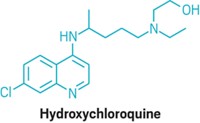Advertisement
Grab your lab coat. Let's get started
Welcome!
Welcome!
Create an account below to get 6 C&EN articles per month, receive newsletters and more - all free.
It seems this is your first time logging in online. Please enter the following information to continue.
As an ACS member you automatically get access to this site. All we need is few more details to create your reading experience.
Not you? Sign in with a different account.
Not you? Sign in with a different account.
ERROR 1
ERROR 1
ERROR 2
ERROR 2
ERROR 2
ERROR 2
ERROR 2
Password and Confirm password must match.
If you have an ACS member number, please enter it here so we can link this account to your membership. (optional)
ERROR 2
ACS values your privacy. By submitting your information, you are gaining access to C&EN and subscribing to our weekly newsletter. We use the information you provide to make your reading experience better, and we will never sell your data to third party members.
Environment
Serum serotonin levels elevated in some cases of sudden infant death syndrome
Some SIDS cases could result from underlying problem in the neurotransmitter’s production and function
by Celia Henry Arnaud
July 10, 2017
| A version of this story appeared in
Volume 95, Issue 28
It’s new parents’ worst nightmare: Their child dies suddenly in his or her sleep, and doctors can’t pinpoint a cause. According to the Centers for Disease Control & Prevention, approximately 1,600 children in the U.S. died in 2015 from this so-called sudden infant death syndrome (SIDS), which doctors believe is a range of disorders. Now a team led by Robin L. Haynes and Hannah C. Kinney of Boston Children’s Hospital and Harvard Medical School reports that nearly one-third of SIDS cases they studied had elevated levels of serotonin in their blood serum (Proc. Natl. Acad. Sci. USA 2017, DOI: 10.1073/pnas.1617374114). Previous studies by some of the same researchers found reduced levels of the neurotransmitter in the brain stems of about 40% of SIDS cases. “If these abnormalities coexist in the same infants, then we would identify these infants as having a global problem in serotonin production or serotonin-related function,” Haynes says. The next step is to determine the underlying mechanism of the abnormal serotonin levels and whether serum serotonin can be used as a biomarker for identifying at-risk babies. Such infants might be identified as having a “serotonopathy” rather than SIDS, Haynes says. With such studies, she adds, scientists will slowly replace the SIDS label with underlying disease processes.




Join the conversation
Contact the reporter
Submit a Letter to the Editor for publication
Engage with us on Twitter